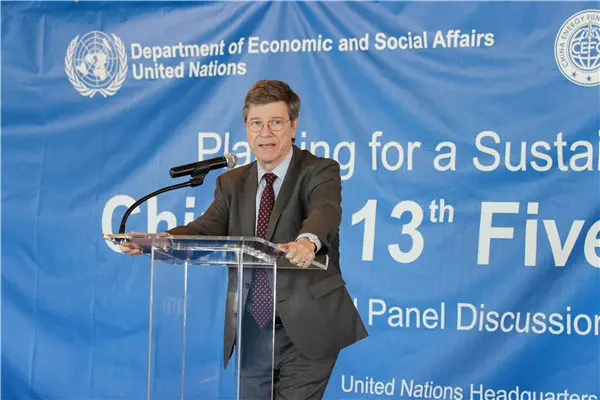The Gambia’s new government has accused supporters of the former president, Yahya Jammeh, of welcoming foreign rebels into their homes in an attempt to destabilise the country.
Residents of Foni, the Gambian region where Jammeh had a vast farm and allegedly “bunkers and treasure”, have been hosting members of a rebel group that for three decades have been fighting for the secession of their region from Senegal.
Giving them a safe haven in the Gambia threatens to upset relations with Senegal, which surrounds the tiny west African country on three sides, and was instrumental in ejecting a recalcitrant Jammeh after he lost the presidential election for the first time in his 22 years in power.
On his first visit to Foni since taking power a year ago, President Adama Barrow and his ministers criticised local leaders for allowing members of the Movement of Democratic Forces of Casamance (MFDC) into their communities.
“Village and district chiefs are my representatives and are duty-bound to carry out my orders, and ensure that there is peace in their places,” Barrow said. “We are having this meeting because there is a failure in the execution of that task.”
The lands minister, Lamin Dibba, added: “This meeting should not have been held. We know that there are people entering the country from Casamance being hosted here in Foni and they are here to create trouble. This must stop.”
Jammeh, who it is alleged had opponents arrested, tortured and murdered, initially accepted the result of the December 2016 election in an extraordinary concessionary call to Barrow televised on state media.
But he later changed his mind, claiming there had been irregularities in the vote and refused to concede. A tense standoff followed, in which regional presidents arrived, negotiated, and departed disappointed, eventually sending troops to Gambia’s borders.
Jammeh finally left, taking with him a fleet of luxury cars and a planeful of senior aides. His destination was Equatorial Guinea, where the longtime President Obiang welcomed him and where to the best of public knowledge he has remained ever since.
Likening his predecessor to a “big snake” as the latter’s loyal chiefs fidgeted under a marquee, Barrow said: “If you see the tracks of a big snake, you might be scared,” he said. “But what about the man who was dragging the snake?”
Barrow might have managed to drag Jammeh from power, but the west African country was left near-bankrupt and, dependent on a regional military force to maintain the peace, it is struggling to deal with a number of security threats. These include violent clashes between his supporters and those of the ruling coalition, and the recent return of two of Jammeh’s most trusted aides from their Equatorial Guinea hideout.
In a security lapse, the two Junglers – members of a notorious squad that is said to have tortured and killed on Jammeh’s orders – flew freely into the country, and were only found and arrested the next day. The military has held them without charge along with 12 other Junglers, despite this being illegal after 72 hours.
“The government is caught in a very difficult situation,” said Ba Tambadou, Gambia’s minister of justice, pointing out the “grave danger” these people posed to the public. “We don’t want to perhaps create a Guantánamo Bay. (But) we are dealing with a very fragile political situation.”
A year after Jammeh was persuaded to leave, his image still adorns the T-shirts and printed cloth worn by loyalists of his party, the APRC, which has struggled to find a replacement for the strongman who said he would rule for “a billion years if Allah wished it”.
Support for him is nowhere more alive than in Foni, where the division he sowed between his ethnic group, the Jolas, and the majority Mandinkas – whom he threatened to bury “nine feet deep” – has often broken out into violence.
“Every Mandinka in this community was attacked. We fear for our lives here,” said Isatou Ceesay, a single mother who described how, one night, unidentified men had broken into her house, vandalised her belongings and wrecked part of her roof.
Other women in Foni said there had been reprisals against them for supporting Barrow’s coalition.
“I can’t leave my village because of my political affiliation,” said Amie Jajue. “I’ve been warned by a lot of people not to go to Casamance, I can’t go and visit my relatives there like I used to. People told the rebels I was an Ecomig spy.”
Ecomig, the regional force responsible for keeping the peace in the Gambia, is due to withdraw in May but its mandate is likely to be extended. The Gambian army is in no position to take over as it is still full of Jammeh-era officers and has yet to be won over to Barrow’s side, according to Gambian observers – though last month, an academic who pointed this out was briefly arrested.
“Some of us think the (Ecomig) troops should go, but not everyone,” said Sarjo Jallow, the chief of Sare Madi village. “They’re here to keep the peace. Anyone against peacekeepers wants trouble.”
But the rifts created during Jammeh’s two decades in power will take a while to heal.
Leaving the foreign troops in charge, speeding off in his convoy with presidential flags flapping, Barrow left his ultimatums to sink in. Watching him go, Jallow remarked: “Many people don’t want to accept change.”
(GUARDIAN)
 简体中文
简体中文

